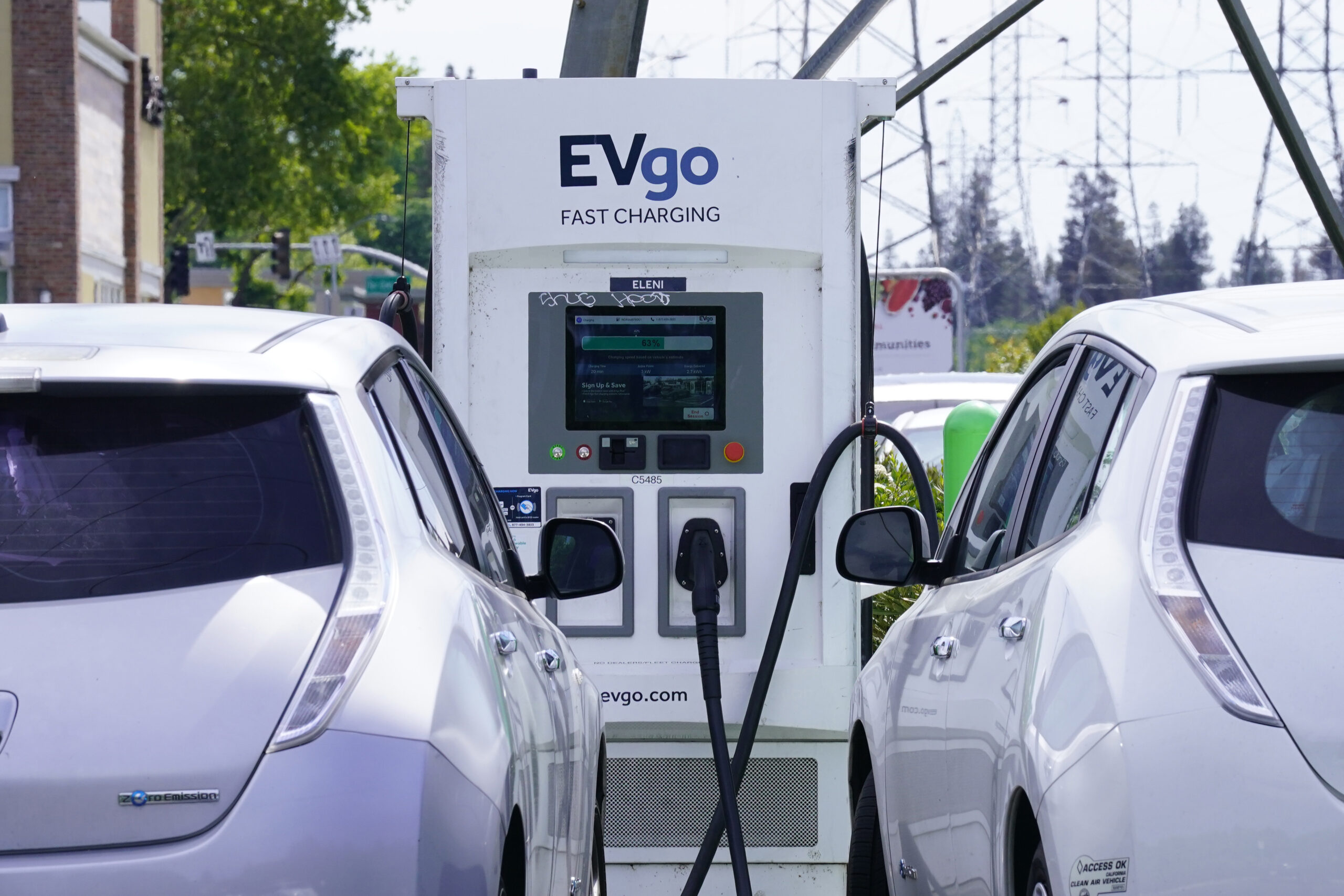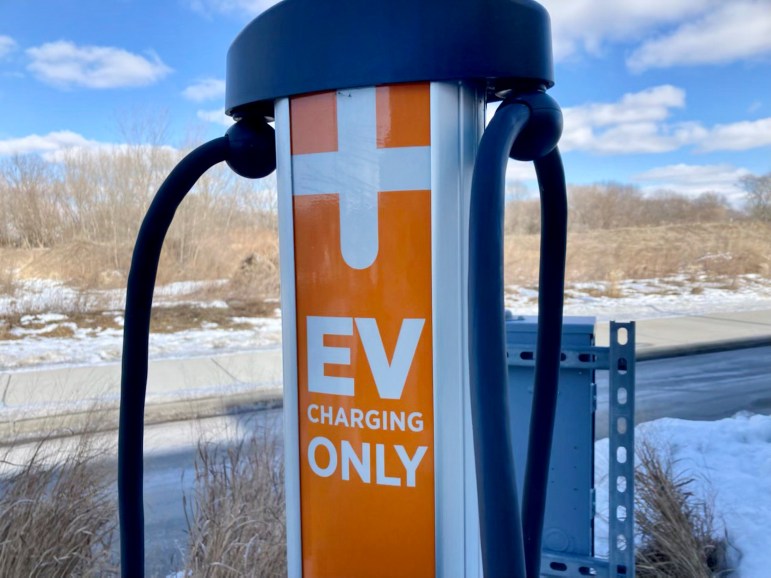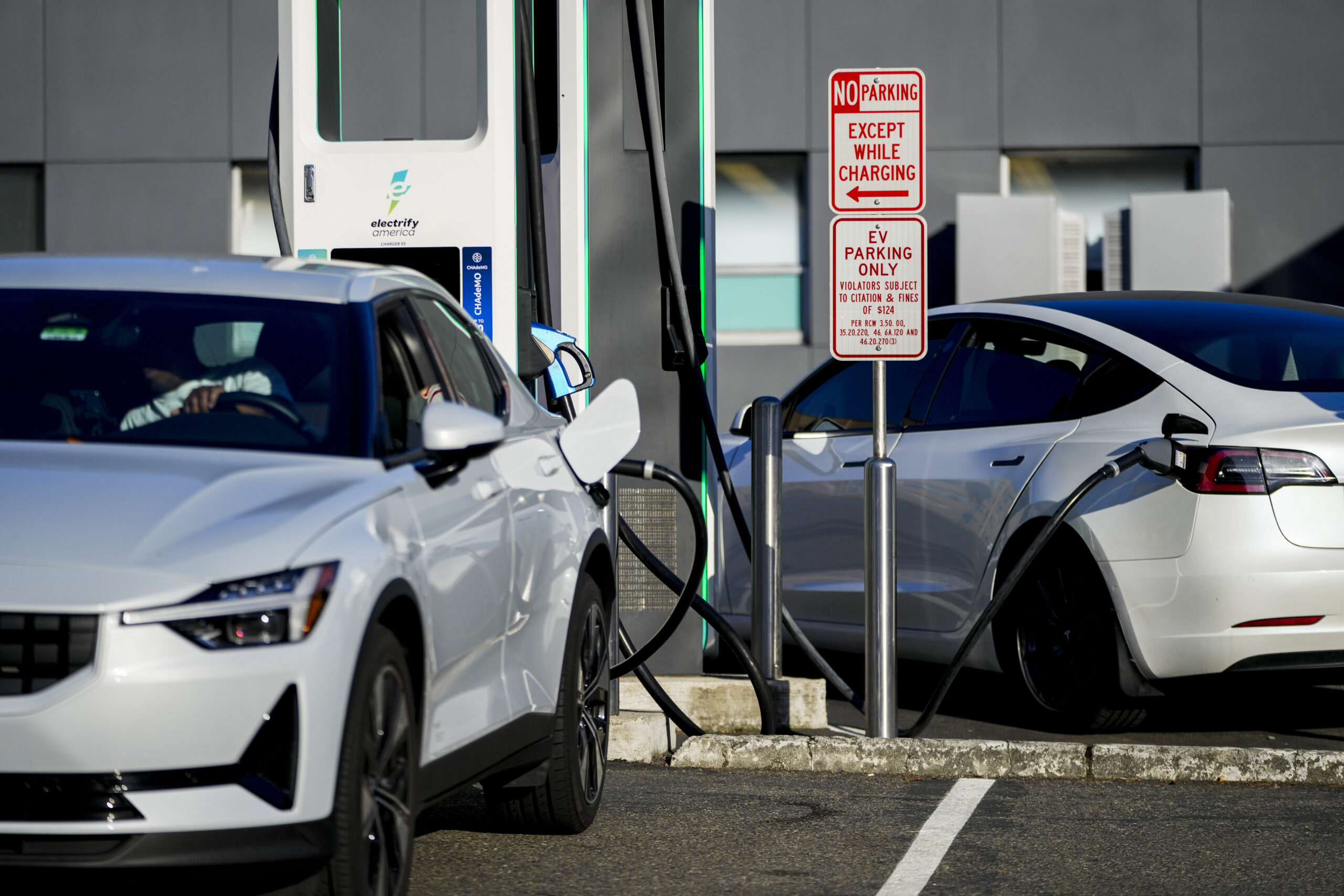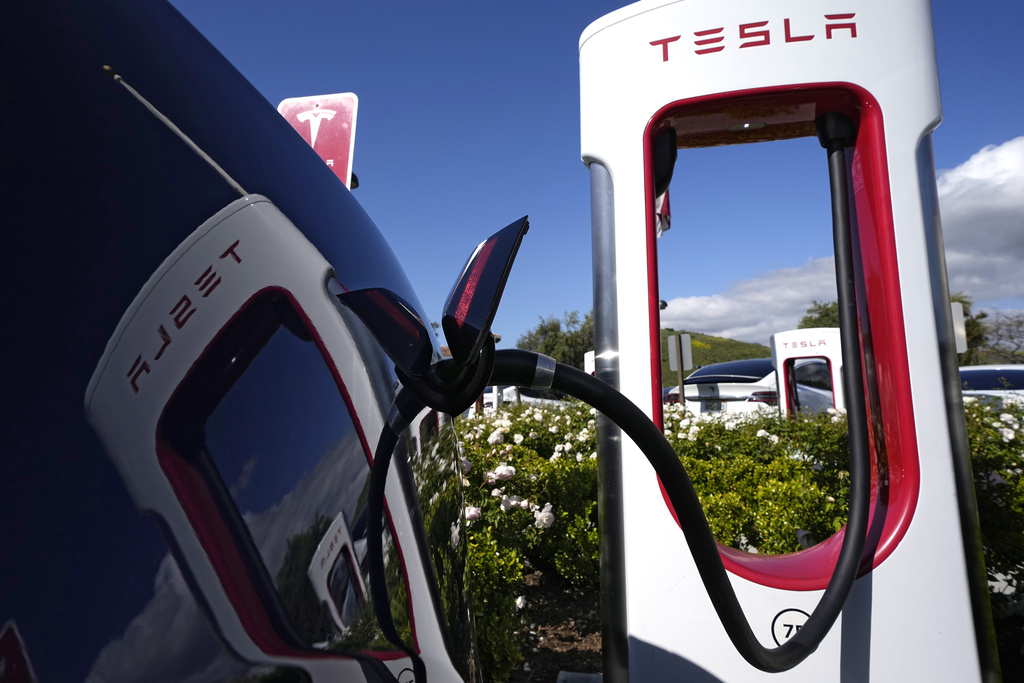The automotive industry and local governments are navigating supply chain constraints while they electrify their fleets as Wisconsin prepares to build a network of charging stations statewide.
In August, the Wisconsin Department of Transportation submitted its plan to the federal government for placing around 60 charging stations within 50 miles of designated highways known as alternative fuel corridors. Under the state’s plan, around 1,900 miles in the state would be covered by the network of charging stations.
“If we can get to these 60 project locations, 85 percent of all state highway miles in the state of Wisconsin will be within 25 miles of a fast charger,” said Kaleb Vander Wiele, the DOT’s transportation electrification project manager, during a virtual roundtable discussion Tuesday hosted by Wisconsin Clean Cities. “Even if you’re in rural Wood County or you are in Sawyer County or you’re in Menominee County, in those locations, technically, you’ll still be within 25 miles of a fast charger.”
Stay informed on the latest news
Sign up for WPR’s email newsletter.
Today, Wisconsin has around 400 charging stations, of which 306 are publicly available. But only four stations meet the federal government’s criteria for funding. The Federal Highway Administration will notify states by the end of the month whether their plans have been approved.
Vander Wiele said Wisconsin will use nearly $79 million in federal funds the state is set to receive over the next 5 years. The money is part of $5 billion awarded nationwide through the bipartisan infrastructure law. It’s part of broader efforts by government officials and automakers to advance the U.S. transition to clean energy and combat climate change. Transportation accounts for the largest share of heat-trapping emissions that contribute to global warming.
Last year, General Motors announced it would phase out gas-powered cars and trucks by 2035 and invest $35 billion in electric vehicles through 2025. Jason Simcoke with GM Fleet Services said the company has been helping commercial fleets pilot EVs in the Milwaukee and Chicago area.
Simcoke said that transition is slow-going as customers shift five to 10 vehicles at a time in their passenger fleets for employees who have consistent routes under 150 miles a day. Even so, he said they’re facing a significant backup of orders for vehicles as automakers face supply chain constraints.
“While you do see supply chain issues in most every vehicle in the automotive industry right now, with the sheer volume that we build, we can prioritize that EV production,” Simcoke said.
GM just announced an electric model of its Chevy Equinox SUV that will be available in the fall of next year, starting at $30,000. That excludes any taxes or other fees, as well as tax incentives. As the industry faces supply chain issues, Simcoke said customers should be planning ahead.
“Whether it’s from GM or any (original equipment manufacturer), the ordering is going to have to take place well in advance of waiting to take delivery,” Simcoke said.
The industry has been facing a shortage of labor, cost increases and a lack of available materials. A shortage of computer chips has forced automakers to strip millions of vehicles from production since early last year.
Even so, Mahanth Joishy, fleet superintendent for the city of Madison, said he’s tired of excuses over supply chain constraints. So far, the city has transitioned to 85 electric vehicles out of his division’s fleet of roughly 1,400 vehicles.
“Whether you’re on the supply side or demand side, we all have more work to do. We need to accelerate this work,” Joishy said. “I don’t think we’re taking this seriously enough.”
Joishy said Wisconsin is far behind on electrification of its transportation system. Vander Wiele said Wisconsin does lag on its conversion to electric vehicles compared to other neighboring states.
Wisconsin had 9,039 electric vehicles registered at the end of last year, making up a fraction of the state’s roughly 6.1 million registered vehicles.
In the meantime, truck dealerships serving Wisconsin and the Midwest say they’re not seeing orders backed up for electric vehicles but diesel trucks, including Hartland-based JX Enterprises and Shullsburg-founded Truck Country. Despite that, Drew Helper, a highway sustainability manager with Truck Country, said they’re encountering issues with charging stations.
“On the electric side, it’s more of the charging infrastructure that you’re seeing that’s been delayed,” said. “It was six weeks, and now it’s out to 20 weeks.”
Brandon Jacobs with Florida-based Blink Charging, which provides fast level 2 EV charging stations for homes and businesses, said they’re pushing hosts to order in advance as they’re seeing anywhere from four to six months lead time on Level 3 fast chargers before they’re ready to install.
Wisconsin Public Radio, © Copyright 2025, Board of Regents of the University of Wisconsin System and Wisconsin Educational Communications Board.






